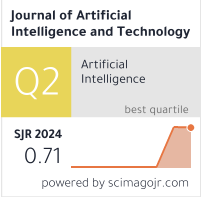Rectal Cancer Prediction and Performance Based on Intelligent Variational Autoencoders Machine Using Deep Learning on CDAS Dataset
DOI:
https://doi.org/10.37965/jait.2023.0241Keywords:
autoencoders, cancer survival, neural networks, rectal cancerAbstract
A pathological complete response to neoadjuvant chemoradiotherapy offers patients with rectal cancer that has advanced locally the highest chance of survival. However, there is not yet a valid prediction model available. An efficient feature extraction technique is also required to increase a prediction model’s precision. CDAS (cancer data access system) program is a great place to look for cancer along with images or biospecimens. In this study, we look at data from the CDAS system, specifically bowel cancer (colorectal cancer) datasets. This study suggested a survival prediction method for rectal cancer. In addition, this determines which deep learning algorithm works best by comparing their performance in terms of prediction accuracy. The initial job that leads to correct findings is corpus cleansing. Moving forward, the data preprocessing activity will be performed, which will comprise “exploratory data analysis and pruning and normalization or experimental study of data, which is required to obtain data features to design the model for cancer detection at an early stage.” Aside from that, the data corpus is separated into two sub-corpora: training data and test data, which will be utilized to assess the correctness of the constructed model. This study will compare our autoencoder accuracy to that of other deep learning algorithms, such as artificial neural network, convolutional neural network, and restricted Boltzmann machine, before implementing the suggested methodology and displaying the model’s accuracy graphically after the suggested new methodology or algorithm for patients with rectal cancer. Various criteria, including true positive rate, receiver operating characteristic (ROC) curve, and accuracy scores, are used in the experiments to determine the model’s high accuracy. In the end, we determine the accuracy score for each model. The outcomes of the simulation demonstrated that rectal cancer patients may be estimated using prediction models. It is shown that variational deep encoders have excellent accuracy of 94% in this cancer prediction and 95% for ROC curve regions. The findings demonstrate that automated prediction algorithms are capable of properly estimating rectal cancer patients’ chances of survival. The best results, with 95% accuracy, were generated by deep autoencoders.
Metrics
Published
How to Cite
Issue
Section
License
Copyright (c) 2023 Authors

This work is licensed under a Creative Commons Attribution 4.0 International License.





